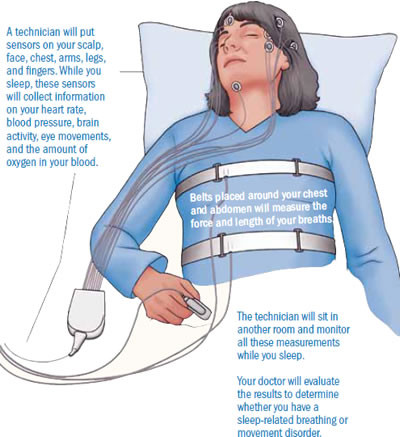
Zinc: What it does for the body, and the best food sources

Respiratory health harms often follow flooding: Taking these steps can help

Tips to leverage neuroplasticity to maintain cognitive fitness as you age

Can white noise really help you sleep better?

Celiac disease: Exploring four myths

What is prostatitis and how is it treated?

What is Cushing syndrome?

Exercises to relieve joint pain

Think your child has ADHD? What your pediatrician can do

Foam roller: Could you benefit from this massage tool?
Sleep Archive
Articles
8 reasons why you're not sleeping
Many conditions, including sleep apnea, restless legs syndrome, pain, and stress, can disrupt your rest. Managing these factors and practicing good sleep habits can help you get a better night's rest.
Will getting more sleep help protect me from dementia?
A study published online April 20, 2021, by the journal Nature Communications suggests thatgetting too little sleep in midlife increases the risk for dementia later in life. Researchers analyzed the sleep data of 8,000 middle-aged adults who were followed for 25 years. People who slept six hours per night at age 50 were 22% more likely to develop dementia, compared with people who slept seven hours. People who slept six hours per night at age 60 were 37% more likely to develop dementia, compared with people who slept seven hours. The study was observational and can't prove causation.
7 strategies to prevent cancer
Does exercise really boost energy levels?
Exercise can create physical changes that help increase energy levels inside the body. In addition, it can induce better sleep at night, which helps people feel more energetic in the morning.
Are toxins flushed out of the brain during sleep?
The glymphatic system is the brain's "waste management" system. It carries fresh fluid into the brain, mixes the fresh fluid with waste-filled fluid surrounding brain cells, and flushes the mix out of the brain and into the blood.
Sleeping five hours or less may raise dementia risk
Cognitive behavioral therapy for insomnia by telemedicine: Is it as good as in-person treatment?
Coming out of COVID
Treating sleep apnea: Good for your heart and mind?

Zinc: What it does for the body, and the best food sources

Respiratory health harms often follow flooding: Taking these steps can help

Tips to leverage neuroplasticity to maintain cognitive fitness as you age

Can white noise really help you sleep better?

Celiac disease: Exploring four myths

What is prostatitis and how is it treated?

What is Cushing syndrome?

Exercises to relieve joint pain

Think your child has ADHD? What your pediatrician can do

Foam roller: Could you benefit from this massage tool?
Free Healthbeat Signup
Get the latest in health news delivered to your inbox!
Sign Up










